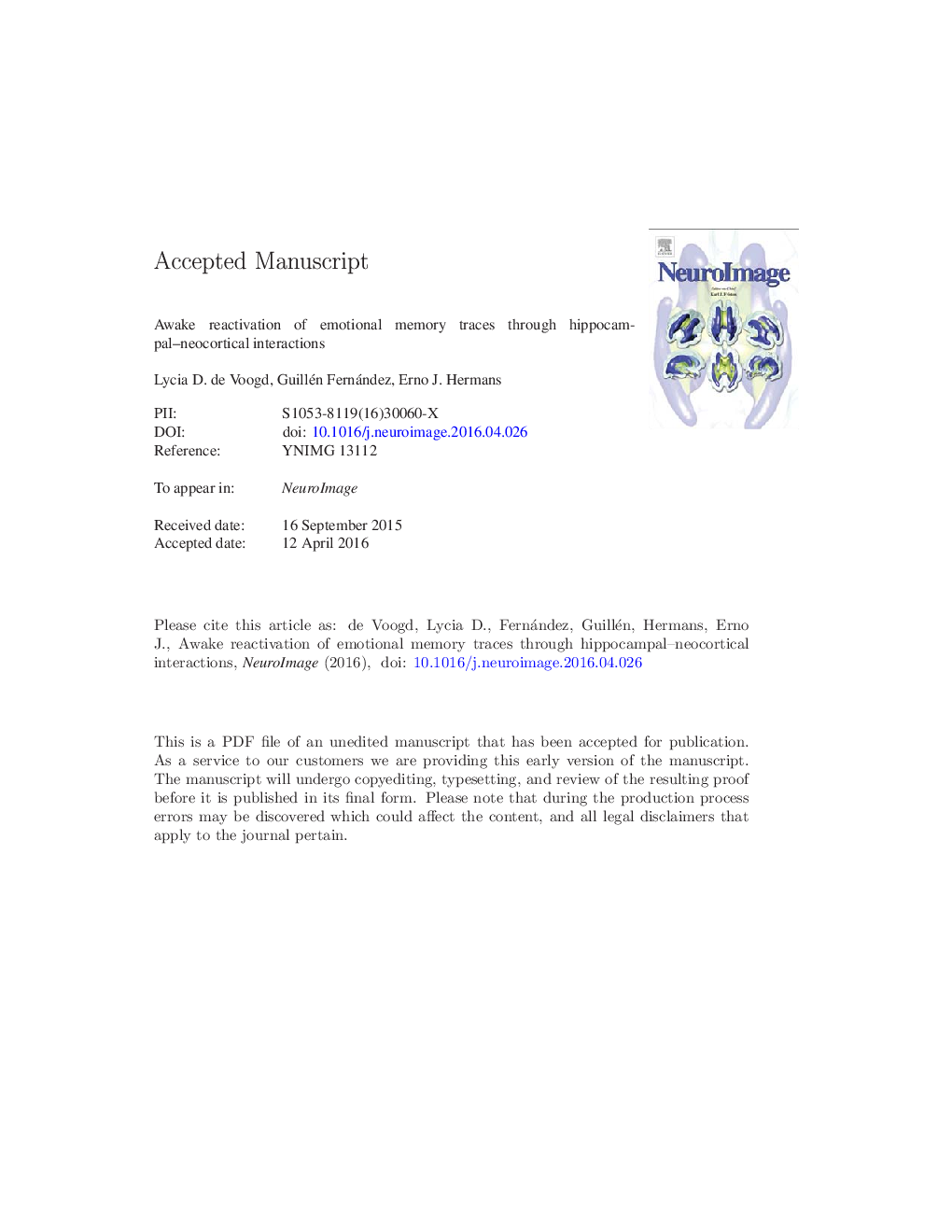| Article ID | Journal | Published Year | Pages | File Type |
|---|---|---|---|---|
| 6023365 | NeuroImage | 2016 | 44 Pages |
Abstract
Emotionally arousing experiences are typically well remembered not only due to immediate effects at encoding, but also through further strengthening of subsequent consolidation processes. A large body of research shows how neuromodulatory systems promote synaptic consolidation. However, how emotionally arousing experiences alter systems-level interactions, presumably a consequence of modifications at a synaptic level, remains unclear. Animal models predict that memory traces are maintained by spontaneous reactivations across hippocampal-neocortical circuits during “offline” periods such as post-learning rest, and suggest this might be stronger for emotional memories. The present study was designed to test this hypothesis in humans using functional Magnetic Resonance Imaging. Participants underwent a two-category localizer paradigm followed by a categorical differential delay fear conditioning paradigm interleaved with blocks of awake rest. Counterbalanced across participants, exemplars of one category (CSÂ +), but not the other (CSÂ â), were paired with mild electrical shocks. Fear recall (differential conditioned pupil dilation) was tested 24Â h later. Analyses of the localizer paradigm replicate earlier work showing category-specific response patterns in neocortical higher-order visual regions. Critically, we show that during post-learning rest, spontaneous reactivation of these neocortical patterns was stronger for the CSÂ + than the CSÂ â category. Furthermore, hippocampal connectivity with the regions exhibiting these reactivations predicted strength of fear recall 24Â h later. We conclude that emotional arousal during learning promotes spontaneous post-learning reactivation of neocortical representations of recent experiences, which leads to better memory when coinciding with hippocampal connectivity. Our findings reveal a systems-level mechanism that may explain the persistence of long-term memory for emotional experiences.
Keywords
Related Topics
Life Sciences
Neuroscience
Cognitive Neuroscience
Authors
Lycia D. de Voogd, Guillén Fernández, Erno J. Hermans,
